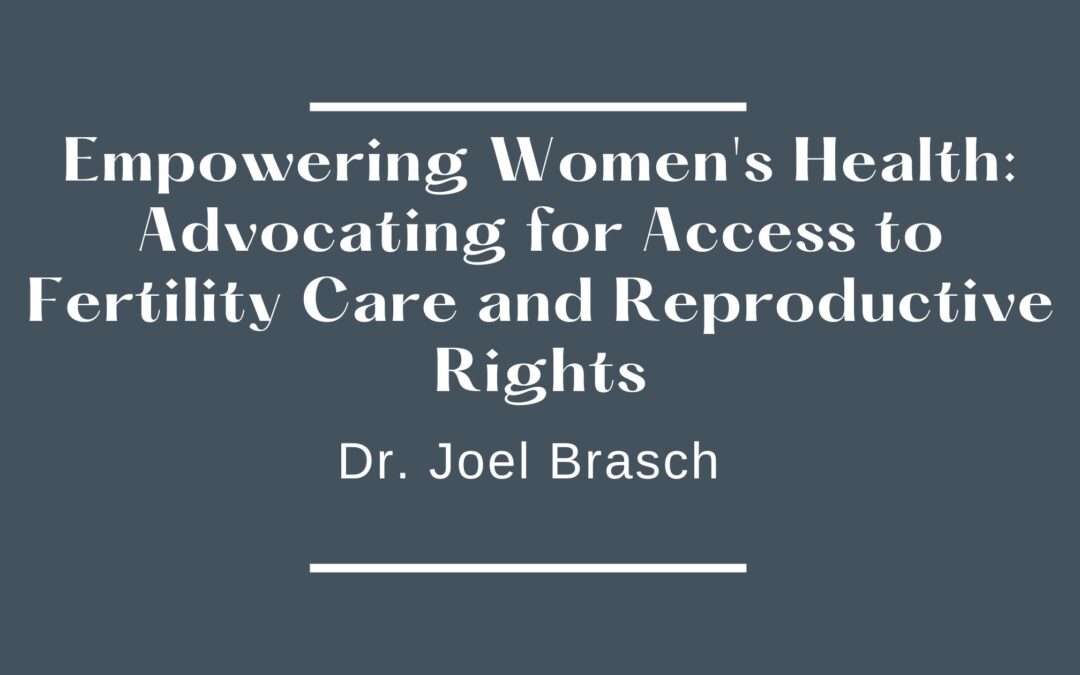Women’s health has always been a cornerstone of a thriving society, yet significant disparities persist in accessing fertility care and exercising reproductive rights. As we progress through the 21st century, advocating for comprehensive and equitable healthcare for women remains crucial. Empowering women with the tools and resources to make informed decisions about their fertility and reproductive health is not just a matter of health but a matter of justice and equality.
The Importance of Fertility Care
Fertility care is an essential component of women’s health, encompassing a range of services from contraception and fertility treatments to prenatal care and education about reproductive health. Access to fertility care ensures that women can make informed choices about if and when they want to have children, thus supporting their overall health and well-being.
Infertility affects millions of women worldwide, often leading to emotional distress, social stigma, and significant financial burden. Despite its prevalence, access to fertility treatments, such as in vitro fertilization (IVF) and fertility preservation, remains limited for many due to high costs and lack of insurance coverage. Advocating for policies that provide comprehensive insurance coverage for fertility treatments can alleviate these burdens and ensure that all women have the opportunity to pursue motherhood if they choose.
Reproductive Rights: A Fundamental Human Right
Reproductive rights encompass the right to access safe and legal abortion, contraception, and comprehensive sex education. These rights are fundamental to women’s autonomy, allowing them to make choices about their bodies and lives. However, these rights are constantly threatened by restrictive laws and policies that limit access to necessary services.
Ensuring reproductive rights involves not only safeguarding access to contraception and abortion but also providing education that empowers women to make informed decisions. Comprehensive sex education is crucial in preventing unintended pregnancies and promoting sexual health. It equips women with knowledge about their bodies, contraception options, and the importance of consent, fostering a culture of respect and responsibility.
Barriers to Access
Numerous barriers hinder women’s access to fertility care and reproductive health services. Socioeconomic disparities play a significant role, with low-income women often facing the greatest challenges in accessing care. Geographic barriers exist, particularly in rural and underserved areas with scarce specialised services.
Cultural and societal stigmas further complicate access. Misconceptions about fertility issues, contraception, and abortion can lead to shame and discourage women from seeking the care they need. Addressing these stigmas through public education campaigns and community engagement is essential in normalizing reproductive health discussions and encouraging women to seek support.
The Role of Advocacy and Policy
Advocacy is critical in driving policy changes that enhance access to fertility care and protect reproductive rights. Grassroots organizations, healthcare providers, and activists play a vital role in raising awareness, lobbying for legislative changes, and supporting women in need.
Policies that mandate insurance coverage for fertility treatments, protect the right to safe and legal abortion, and fund comprehensive sex education programs are critical. Additionally, expanding Medicaid and other public health programs to cover reproductive health services can significantly reduce the financial barriers that many women face.
Empowering Women Through Education and Support
Education and support networks are fundamental in empowering women to take control of their reproductive health. Providing accurate information about reproductive options, fertility treatments, and the legal rights surrounding reproductive health is crucial. Support groups and counseling services can also offer emotional support and practical advice, helping women navigate the often complex landscape of fertility and reproductive healthcare.
Conclusion
Empowering women through access to fertility care and reproductive rights is a fundamental aspect of gender equality and human rights. By advocating for comprehensive healthcare policies, addressing cultural stigmas, and providing robust education and support, we can ensure that all women have the opportunity to make informed decisions about their reproductive health. In doing so, we improve individual health outcomes and foster a society where women are free to pursue their goals and aspirations without the limitations imposed by inadequate healthcare.

